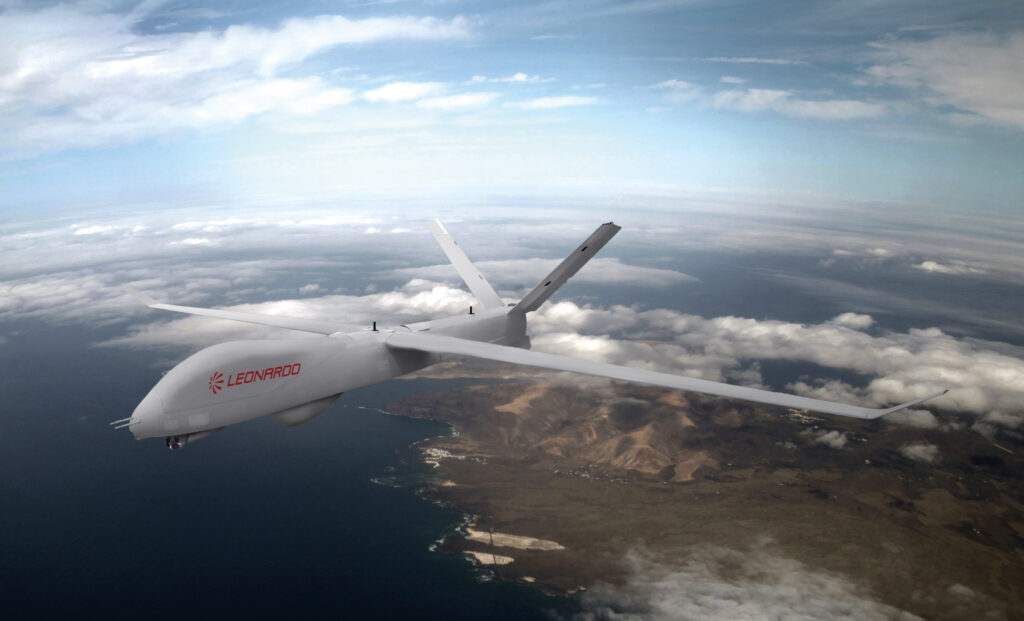
Leonardo has completed the first phase of flight testing for its Falco Xplorer drone with the system ready for the second phase of the campaign, which is expected to lead to certification of the uncrewed aircraft.
Falco’s flight testing and certification activities took place at Trapani Birgi military airport, Sicily, with the support of the Italian Air Force’s 37°Stormo wing. During the flight tests, 37°Stormo provided all essential airport services including air traffic assistance, fire prevention and flight safety, ensuring that the flight campaign was conducted in complete safety and in accordance with sector regulations. According to Leonardo, the Xplorer performed all planned flights on schedule, as well as completing a range of complex functional tests, confirming the maturity of the platform. In addition, the behaviour of the aircraft in a number of phases of the flight envelope was validated.
The second test campaign will take place under the supervision of the Directorate for Aeronautical Armaments and Airworthiness (DAAA). This will certify the Falco Xplorer’s ‘fitness to fly’ according to NATO standard STANAG 4671 and involve a series of complex flights. The system’s most advanced capabilities will be validated, together with the military authority, including automatic take-off and landing and satellite communications for beyond-line-of-sight operations.
Made entirely in-house, the Xplorer’s sensor suite will be assessed, with the baseline suite consisting of the company’s LEOSS electro-optical turret, Gabbiano TS-80 UL multimode radar, and Automatic Identification System for the monitoring of maritime traffic and the SAGE electronic intelligence system. The Falco Xplorer utilises Leonardo’s flexible ATOS mission system, which has an open architecture to allow for the integration of additional sensors, including from third parties.
The Xplorer is the latest entry in Leonardo’s Falco fleet of uncrewed systems, its designed to deliver surveillance over wide areas of interest and is believed to be able to carry multiple sensors weighing up to a total 350kg. Certification will enable the Xplorer to fly over populated areas, expanding its scope and allowing it to operate in support of public safety and civil protection missions.












